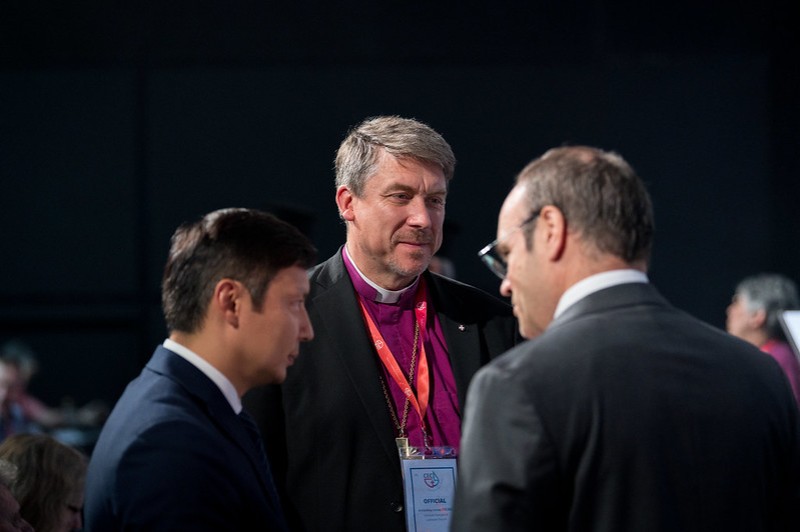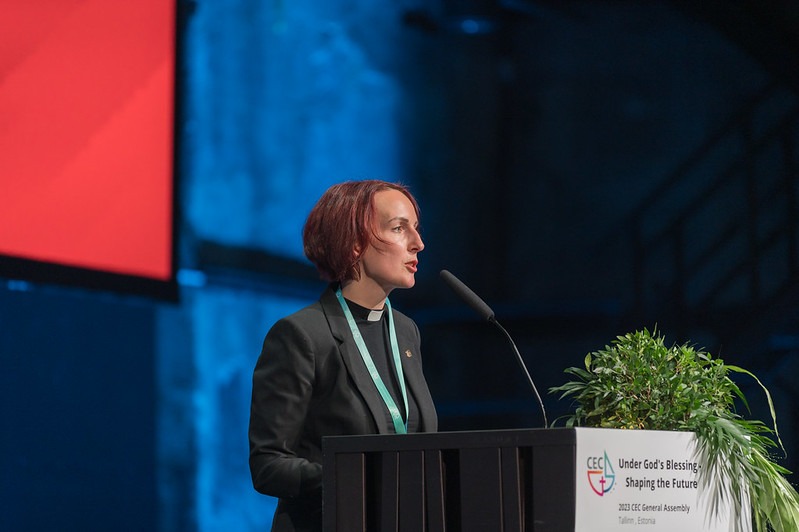
Photo: Albin Hillert/CEC
Feature Article No: 01/23
18 June 2023
Tallinn
By Cornelia Kästner (*)
Estonian churches are hosting the CEC General Assembly in Tallinn for the first time. The Estonian Evangelical Lutheran Church was among the founding members of CEC. Archbishop Urmas Viilma of the Estonian Evangelical Lutheran Church and head of the Estonian Council of Churches (ECC) highlighted the significance of CEC and its Assembly held from 14-20 June, which addressed the theme “Under God’s blessing – shaping the future.”
Archbishop Viilma said “It has taken 65 years for the Assembly to come to Estonia”. “However, looking at the theme,” he added “our task as churches has not changed. Man’s sinful nature has not changed. History has started to repeat itself. And we are gathered in Tallinn to plan for a better future,”
When reflecting on relations between CEC and the Estonian churches, the Archbishop considered that the membership in ecumenical organisations like CEC is important for building bridges and creating neutral ground for informal meetings between churches that for political reasons may not have a relationship.
In Soviet times, CEC assemblies provided an opportunity for the Lutheran church in Estonia to meet with their counterparts in exile. Today, the ECC provides a space where the two Orthodox churches in Estonia, the Ecumenical Patriarchate and the Moscow Patriarchate, can still speak with each other.
“We always try to speak with one voice, and have the signatures of all ten members on our statements,” Viilma emphasises.
Estonia, just a little bigger than the Netherlands, is a secular country. Decades of Soviet occupation have cut the traditional family ties to churches and faith. There is no religious instruction in public school, the government does not collect church tax. “We have been separated from the state for more than 100 years,” Viilma says. Today, only 26 percent of Estonians are Christians, the majority being either Lutheran or Orthodox.
At the same time, “we are not only serving our members, but the whole of society,” the Archbishop adds. “We need to ask ourselves: how can we have a distinctive voice, how can we be seen, how can we be active in society? How can we reach young people?”

“Having the General Assembly here means a lot”
“The CEC Assembly has helped people at congregational level to see high-level ecumenical relations as a normal part of church life,” says Rev. Dr Triin Käpp, CEC Assembly Coordinator from the Estonian Evangelical Lutheran Church. “While preparing for the General Assembly, different ecumenical hierarchies have mingled, and worked well together. The different congregations have prepared Sunday worship for the CEC assembly and are happy to welcome the participants,” Käpp says.
“Having the General Assembly here means a lot to us.” Käpp says. “The Assembly addresses key issues we are facing. What is the point of church in society, why do people need us pastors – these are questions I ask myself every other day."
(*) Cornelia Kästner is Senior Communication Officer at the Lutheran World Federation